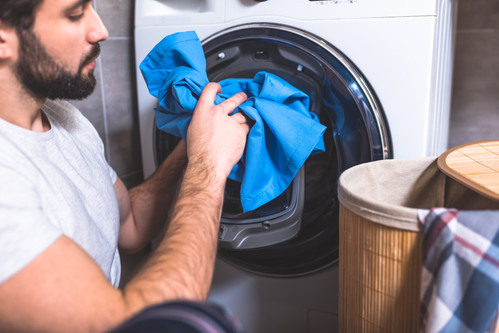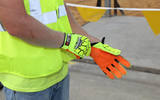How to Launder FR Clothing
If your business regularly uses flame resistant clothing, you might be wondering how to best launder your FR work uniforms. After all, these pieces of clothing aren’t the same as regular clothing materials, so you’ll need to follow specific instructions when washing them to maintain their effectiveness in the field. If you fail to follow these instructions or mishandle your FR clothing, you could put your employees at risk on the job or you may need to purchase new FR clothing down the line. To save money and better protect your workers, learn the ins and outs of laundering FR clothing.
Follow the Manufacturer’s Instructions
When laundering your FR clothing, it’s always best to follow the manufacturer’s instructions verbatim to avoid mishandling your company’s work attire. While the following guidelines for laundering FR clothing may be helpful, the manufacturer always knows best. Read through these guidelines carefully before laundering your FR clothing to avoid damaging the materials or compromising their FR properties.
Laundering FR Clothing: Dos and Don’ts
These rules apply to most FR clothing, but double-check the manufacturer’s guidelines just to be safe.
FR clothing can typically be washed in either a home or industrial laundry machine, but industrial machines may be better suited to certain kinds of work environments such as those with heavy grime and tough buildup, while home laundry machines can be used to remove everyday dust and dirt. Study your work environment before choosing between a home and an industrial washing machine.
You shouldn’t use chlorine bleach when laundering FR clothing. Bleach can compromise the FR properties of cotton fabrics over time. If you expose your FR clothing to chlorine bleach, remove these articles from service.
You also shouldn’t use fabric softeners or starch when laundering FR clothing. These materials often contain flammable components that can buildup on your clothing over time, compromising their FR properties. If you accidentally use fabric softener or starch when laundering your FR clothing, run them through the wash again to remove the flammable components.
If you choose FR clothing from a reliable safety clothing manufacturer and follow the manufacturer’s guidelines, you can continue using your FR clothing for years to come without wearing down their FR properties. You can’t wash or wear out your clothing’s FR properties unless you mishandle the fabric in some way.
If the garment shrinks, tears, gets a hole or spot, or becomes compromised in some way, you should remove it from service. To avoid these incidents, always handle your FR clothing according to the manufacturer’s instructions. A simple stain may not ruin a piece of FR clothing, but if the stain doesn’t come out in the wash, use your judgment before putting it back into service. If the clothing was involved in a flash fire or short-duration thermal exposure, it should be removed from service and replaced.
When patching your FR clothing, make sure you use the same FR fabric. You should only use FR thread or high-temperature melamine buttons when repairing the clothing.
In addition to chlorine bleach and fabric softener, you should also avoid using insect repellent, especially those with DEET, on your FR clothing. Spray insect repellent directly on the skin instead of your clothing. You should also avoid using anti-static or wrinkle-free dryer sheets.
You should only launder FR clothing with other FR clothing. Do not launder everyday clothing with FR clothing at the same time.
Use these tips to properly launder your FR clothing. If you have any questions, contact the clothing manufacturer for more information.
GRIT by PK Safety
If you’re looking for quality FR clothing for your business, visit PK Safety to learn about our GRIT FR clothing line. It’s made with quality materials to keep your employees safe on the job. Contact us for more information.
Recent Posts
-
Customizing Gas Detectors: Tailoring Solutions to Fit Your Unique Requirements
In today’s diverse industrial landscape, a one-size-fits-all approach to safety simply doesn’t cu …Jul 3rd 2024 -
10 Ways to Prevent Wildfires
You can prevent wildfires by extinguishing flames before you leave the worksite. Avoid practicing …Jul 1st 2024 -
ANSI/ISEA 138 Safety Gloves: Ensuring Hand Protection
The human hand is an anatomical masterpiece and arguably the greatest tool attached to our bodies …Jun 25th 2024





